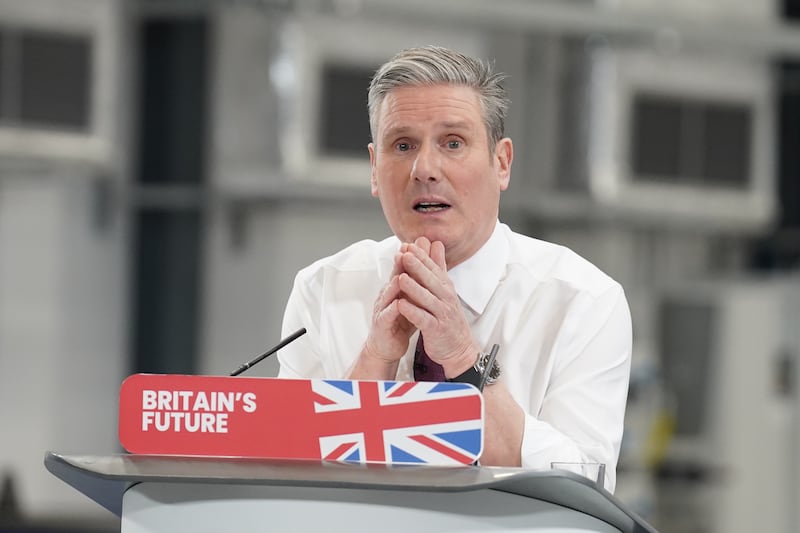Had things panned out differently before Christmas we may well have been looking forward to a new assembly term beginning next week, alongside the inaugural meeting of a freshly-formed executive, the first ever in which Sinn Féin holds the most ministries.
December’s flurry of activity at Hillsborough Castle, much of it under the guise of putting Stormont on a sustainable financial footing, was designed to create a landing zone for the DUP.
Months of talks with the British government about refining east-west trade had run their course, while negotiations over the obligatory financial package to oil the wheels of discontent had yielded what most concluded was the optimum result.
Yet there was an apparent slip between cup and lip.
The expectation in some quarters that Sir Jeffrey Donaldson would signal his party’s readiness to restore devolution exactly one week before Christmas Day proved misplaced. Seemingly something unnerved the DUP leader over the previous weekend, prompting him to think twice about leading his party back into government.
These pre-festive shenanigans have led to the development of two schools of thought.
The first is that it would have been foolish for the DUP leadership to end its boycott of the institutions with Christmas looming. The subsequent holiday period would have provided Sir Jeffrey’s opponents with a fortnight to pore over every detail of the deal he signed off, so the argument goes, while the corresponding lull in the news cycle would’ve given his critics plenty of air time and column inches to skewer the plan for putting Stormont back on track.
Those subscribing to this narrative, believe there will be movement in the coming days and that our MLAs will be back on full pay before the month is out.
The alternative reading is that a long game is being played in which the DUP holds out for a Labour administration in London that’ll inevitably align the UK much closer with the EU, undoing much of Brexit’s economic and reputational damage. As a strategy, this best suits the DUP, as it would mean it doesn’t need to make an obvious climbdown, and that rather than it having to manoeuvre to meet changing circumstances, the landscape would transform to the extent that Sir Jeffrey’s concerns about fettered trade would no longer be relevant.

The drawback with such an approach is that its timing is at the behest of others and that until the Tories name a date for the general election, the north’s political system will effectively be put on hold. For an overwhelming number of the Stormont parties, this is neither feasible or desirable.
Every day we are without government, public services visibly deteriorate and public sector workers become increasingly frustrated.
While it’s advisable never to take a Tory prime minister’s word at face value, Rishi Sunak signalling that an election is more likely in the autumn than late spring makes any notion of the DUP holding out for a change of government completely untenable.
The backlash at the polls against both the DUP and Sinn Féin in late 2019 is still fresh in the memory. Dargging this process out until May would’ve been bad enough but almost another year of stalling would surely amount to electoral suicide.
Sammy Wilson, Ian Paisley and Nigel Dodds may argue otherwise from their safe seats in the Commons and the Lords, while the terminally sceptical Jim Allister and his fellow travellers will always choose the option that undermines power-sharing.
Sir Jeffrey knew before Christmas that time was running out yet thought better of attempting to push through a deal before the Christmas break. Festive spirit may have enabled him to pull that one off but the public won’t be as forgiving if he seeks to string things out for the guts of another year.









